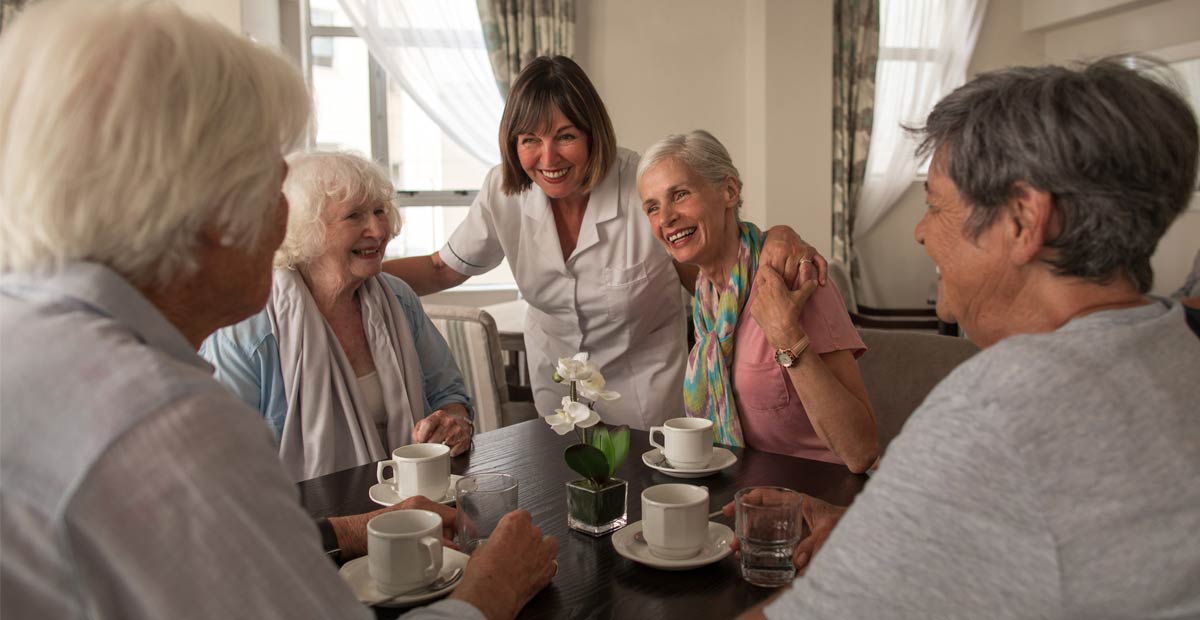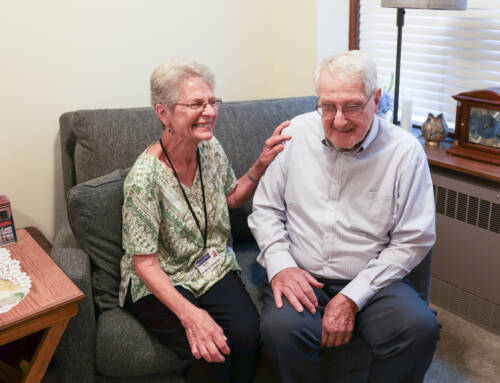Socialization is essential for those of every age, but particularly those who are already retired or approaching retirement. After retirement, there are many factors that can cause someone to be more lonely than usual: children and grandchildren may have moved away for work, friends may be having more difficulty getting out of the house because of health concerns or a spouse may have passed away.
“Socialization has important emotional and cognitive benefits in older populations,” says Jess Lee, a clinical psychologist at Masonic Village at Elizabethtown. “Consistent socialization reduces isolation and loneliness, two primary risk factor for depression in the elderly. Additionally, interpersonal interactions support one’s sense of self-worth and help maintain fulfillment and purpose in life.”
Some of the challenges with socializing as you get older are generally being more tired than before and becoming exhausted from social events that might have energized you previously. You may also have decreased mobility or other health concerns that make it difficult to maintain energy levels. Whatever you or your loved one are facing, there are many benefits to engaging in social activities, even if they require a little more effort than before.
On the surface, seeing friends and family in some capacity appears to reduce loneliness. On a deeper level, however, research has shown there can be biological effects on the body when someone remains socially active, and it can positively affect mood, immune response and overall happiness. According to the National Institute of Aging, keeping connections with those you love can reduce anxiety and depression, among other health problems.
“Cognitively, socialization can help support memory and brain function as one ages,” Jess says. Maintaining social circles can also reduce your risk of dementia and slow down cognitive decline. Keeping your mind active with conversations and social events can reduce stress in the brain and build a “cognitive reserve” that helps improve cognitive ability. Remaining isolated deprives you of the myriad of biological and mental benefits derived from socialization.
Having a gym partner or scheduled walks with friends keeps you active and more physically fit as you age – just another benefit of regular socialization.
While COVID-19 has made it more difficult to enjoy these benefits due to decreased connection with friends in person, social interactions can still happen online. Take extra time to call friends and family over the phone or through video chat services like Skype, FaceTime or Zoom. You can still reap many of the benefits described above, even if you’re not in the same room as the people you’re talking to.
Although it can be harder to remain as socially active as you age because of factors outside of your control, it’s important to remain as socially engaged as you can for the physical and cognitive health benefits.
At Masonic Villages, recreation, activity and therapeutic recreation staff coordinate programs, events and trips to engage residents with various levels of physical and cognitive abilities. Spiritual care and wellness staff also provide ample opportunities to engage with others in meaningful ways. Contact the location of your choice to view event calendars.




